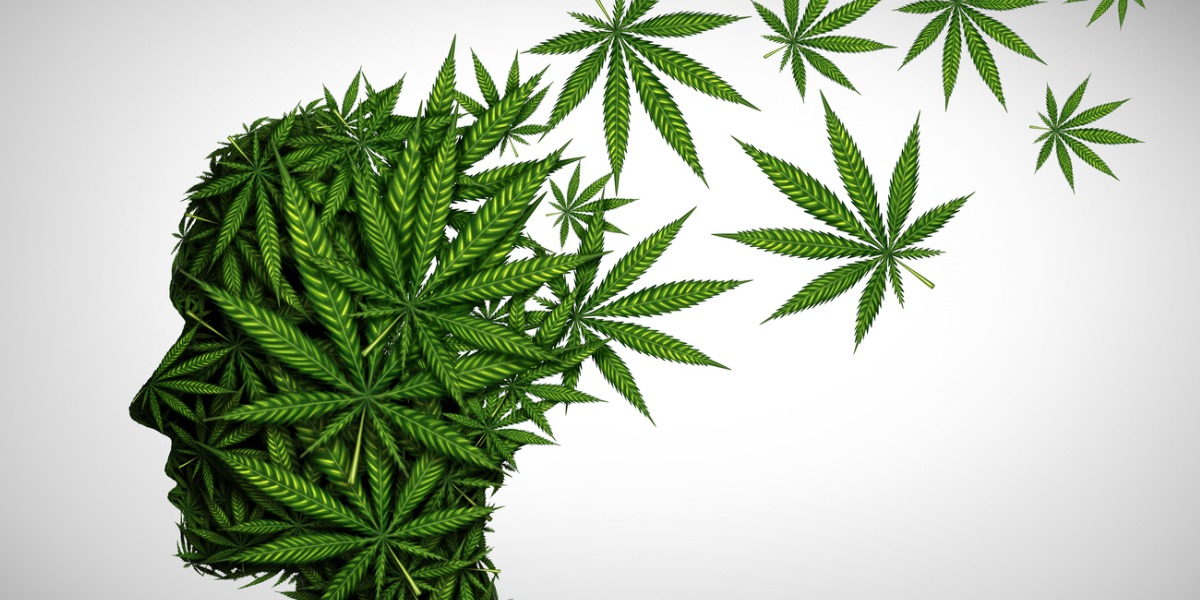For decades, some people have warned that cannabis (marijuana) is a gateway drug and can lead to the development of mental health disorders. This term gateway drug implies that people whose first experiences with substance use involve cannabis may be more likely to abuse and become addicted to drugs such as alcohol, cocaine, and heroin later in life.
Though some researchers identify higher rates of addiction among people who use cannabis, scientists debunked the gateway drug concept years ago. However, this does not mean that a person’s history with cannabis has no association with current or future health struggles, including with mental health disorders.
Multiple studies show an association between cannabis use and several types of mental health disorders, including , schizophrenia, bipolar disorder, and depression.
Cannabis and Mental Health: Schizophrenia
A genetically informed study in the June 2023 edition of The Lancet is among the latest in a series of reports that suggest a link between cannabis use and schizophrenia.
After analyzing DNA data from more than 2,100 European adults, a team of researchers from Oslo, Norway, reported that “a subgroup of individuals might have a high genetic risk of developing a psychotic disorder and using cannabis.”
It is important to note that the authors of this study found that the cause-effect relationship between cannabis use and mental illness may work in both directions::
- Bipolar disorder and schizophrenia, the Norwegian team reported, “showed a causal effect” on both lifetime cannabis use and cannabis disorder.
- Conversely, the researchers also determined that lifetime cannabis use can influence a person’s risk for developing bipolar disorder.
One month prior to the publication of the Norwegian study, a much larger research effort appeared in a May 2023 article in the journal Psychological Research. This study involved information collected from more than 6.9 million Danish adolescents and adults over a period of nearly 50 years (1972-2021).
The researchers who conducted the Danish study explored how gender may influence the cannabis-schizophrenia link. Their findings indicate that adolescent boys and adult men may be in greater danger than their female counterparts:
- Among the entire age range (16-49) of the study’s subjects, the link between cannabis use disorder (marijuana addiction) and schizophrenia appeared stronger for men than women.
- Among older adolescents and younger adults (aged 16-20), the risk ratio for cannabis use disorder and schizophrenia was twice as high among males than among females.
- Eliminating cannabis use disorder, the Danish researchers stated, could potentially prevent 20% of cases of schizophrenia among young men.
Here’s how the research team describes their findingss:
“[Our] results highlight the importance of early detection and treatment of [cannabis use disorder] and policy decisions regarding cannabis use and access, particularly for 16–25-year-olds.”
Next, we’ll examine the relationship between cannabis and bipolar disorder.
Cannabis and Mental Health: Bipolar Disorder
Denmark’s nationwide health registry was also the data source for a cohort study on cannabis, bipolar disorder, and depression published in May 2023 on the website of the journal JAMA Psychiatry. An international team that included researchers from Denmark, Australia, and the United States conducted the study.
Using information collected from more than 6.6 million Danish citizens from 1995-2021, the international research team attempted to identify a relationship between marijuana, depression, and bipolar disorder.
Marijuana and Bipolar Disorder: The Connection
- Marijuana use: associated with an elevated risk of both psychotic and nonpsychotic bipolar disorder in men and women.
- Marijuana addiction: associated with a greater risk for psychotic bipolar disorder, but not for nonpsychotic bipolar disorder.
- Marijuana addiction: linked with a higher prevalence of both psychotic and nonpsychotic unipolar depression in men and women.
The impact of marijuana on symptoms of bipolar disorder was also the focus of a June 2017 report from the University of Washington’s Alcohol and Drug Abuse Institute. Highlights from that document, created by research consultant Susan A. Stoner, PhD, include the following:
- Marijuana use has been linked to an earlier onset of bipolar disorder symptoms, extended or more severe manic episodes, and an increased risk of attempted suicide.
- Marijuana addiction appears to increase the intensity of manic episodes, depressive episodes, and psychotic symptoms among people with bipolar disorder.
- An Australian study concluded that people who use marijuana are less likely to achieve long-term remission from bipolar disorder symptoms.
- Among women who have bipolar disorder, marijuana use lowers the likelihood of remission from depressive symptoms.
- Among men with bipolar disorder, marijuana use reduces the likelihood of achieving remission from manic symptoms.
Supporting the connection between cannabis and bipolar disorder is the fact that when a person ends their substance abuse, they often experience relief from the symptoms of their mental illness.
“Findings indicated that negative effects of marijuana use on the course of [bipolar disorder] disappear when patients stop using it,” Stoner wrote. “Stopping marijuana use during an acute manic/mixed episode had similar clinical and functional outcomes at two years as never having used marijuana.”
Cannabis and Mental Health: Depression
Among the three mental illnesses discussed in this article, depression is widely considered to be the least disruptive. But the potential negative impact of depressive disorders should never be underestimated.
In a 2011 article in the journal Prevention Science, Katie A. McLaughlin, PhD, noted the following about depression:
- Major depression is “a prevalent and disabling condition that constitutes an important public health problem in the United States.”
- About 17% of adults and 12% of adolescents will experience at least one major depressive episode.
- Two-thirds of people with depression experience severe impairment. Even those with mild impairment have an elevated risk of unemployment, hospitalization, and suicide.
Underscoring the widespread impact of depression, the World Health Organization estimates about 280 million people across the globe have depression.
Given the ubiquity of depression and its potential for long-term harm, researchers are understandably interested in identifying any factors that can increase a person’s risk of developing a depressive disorder or experiencing exacerbated symptoms.
In May 2021, the journal Frontiers in Psychiatry published a detailed review of literature on the link between cannabis and depression. The Canadian team that conducted this review reported the following.
Cannabis and Depression: Negative Consequences
- Evidence points to a link between marijuana use and worse prognoses among people who have major depressive disorder.
- The rate of depression among people who use cannabis may be as much as 67% higher than among the general public.
- Heavier use of cannabis is associated with an increased prevalence of depression and an earlier onset of symptoms.
- THC (which is the primary psychoactive component in cannabis) appears to have the ability to intensify some depression symptoms.
The Canadian researchers also noted that depression is a risk factor for cannabis use. This means that there seems to be a bidirectional relationship between depressive disorders and marijuana use, rather than a one-way “marijuana use leads to depression” association.
Questions Remain About Cause and Effect Between Cannabis and Mental Health Disorders
The studies that we have discussed in this article strongly suggest that marijuana use and addiction are related to both the prevalence of certain mental health disorders and the severity of their symptoms.
If you only read the headlines of the articles that announced or reported on these efforts, you could easily come away convinced that marijuana is to blame for these concerns. However, as emphasized by most of the researchers themselves, establishing an association is not the same as identifying a cause.
For example, in August 2022, the journal BMC Psychiatry published a Canadian study that investigated the link between marijuana use, depression, and posttraumatic stress disorder (PTSD) in the context of the COVID-19 pandemic.
Marijuana, Depression, and PTSD: Results
- 72% of people who increased their use of marijuana during the first few months of the pandemic also reported more severe symptoms of depression.
- Among those who either decreased their marijuana use, remained at the same level, or didn’t use the drug at all, the percentage that reported worsening depression ranged from 40%-50%.
One interpretation of this data is that increased marijuana use leads to more intense depression. Another perspective is that people who experience greater emotional suffering are more likely to increase their use of cannabis. The truth, as is so often the case, is likely somewhere in the middle.
Since marijuana use is so common — and since access to the drug has become easier as legalization initiatives expand – many people use it as a means of self-medication when they are experiencing psychological distress.
Evidence from multiple sources in several nations strongly suggests that the intensity and duration of certain symptoms of schizophrenia, bipolar disorder, and depression can be linked to cannabis use.
For clinicians as well as for the loved ones of individuals who have these conditions, this association is undoubtedly worth continued attention. What is far less clear, though, is whether changes in mental health symptoms are the result of cannabis use, or if adjustments in the amount and frequency of a person’s cannabis use are indicators that their symptoms have changed.


 Gianna Melendez
Gianna Melendez Jodie Dahl, CpHT
Jodie Dahl, CpHT